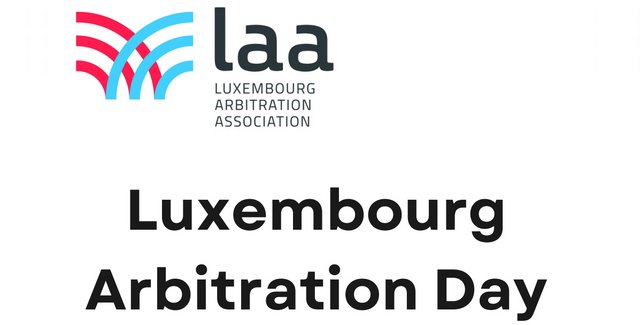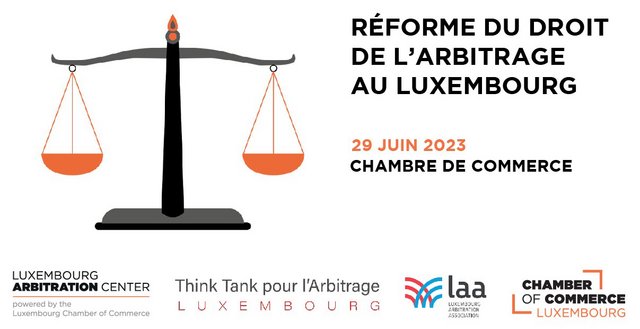
Chapters
L'entreprise qui rencontre des difficultés et qui veut trancher ses différends avec des fournisseurs, prestataires et/ou clients peut recourir à la médiation ou à l’arbitrage.
A propos du Luxembourg Arbitration Center
A) Nos missions
Le Centre d'Arbitrage de la Chambre de Commerce du Grand-duché de Luxembourg, également connu sous la dénomination Luxembourg Arbitration Center (LAC), a été créé en 1987 afin d’offrir une alternative au règlement judiciaire des litiges qui s'avère souvent trop long, coûteux et peu adapté à la technicité et complexité du monde des affaires. Le Centre dispose de son propre Règlement d’Arbitrage (Règlement) qui a été mis à jour le 1er octobre 2025, consécutivement au lancement de la plateforme digitale de gestion des procédures d’arbitrage du LAC.
En plus de fournir des services d'arbitrage, le Centre est proactif dans la promotion de l'arbitrage en contribuant au développement du droit de l'arbitrage, à la formation des arbitres de qualité et en fournissant un soutien aux associations d'arbitrage locales : Think Tank pour l'Arbitrage et Association Luxembourgeoise d'Arbitrage.
B) Organisation du Centre
Le Conseil d'Arbitrage
Le Centre fonctionne sous l'autorité d'un Conseil d'Arbitrage (Conseil) qui compte au moins cinq membres.
La mission du Conseil est d'organiser et de veiller au bon déroulement des procédures d'arbitrage, selon les dispositions prévues par le Règlement.
Le Conseil se réunit pour discuter et prendre les décisions appropriées, notamment en matière de compétence prima facie, de nomination ou de récusation des arbitres et de frais d'arbitrage.
Composition actuelle du Conseil d’Arbitrage :
Le Conseil d’Arbitrage est actuellement composé de 8 membres, sous la présidence de Mr. Frank Krings.

Frank Krings
Président

Olivier Cachard

Laurence Demelenne

Albert Moro

Elisabeth Omes

André Prüm

Georges Ravarani

Carlo Thelen
Le Secrétariat
Le Secrétariat, sous la direction de son Secrétaire général, est chargé de la gestion quotidienne des dossiers et de l’organisation d’événements en rapport avec la promotion de l'arbitrage :
Anne-Sophie Theissen, Secrétaire général
Michaël Sibilia
Cindy Forini
C) Nous contacter
Adresse postale:
LUXEMBOURG ARBITRATION CENTER
CHAMBRE DE COMMERCE
L-2981 LUXEMBOURG
Adresse visiteurs:
LUXEMBOURG ARBITRATION CENTER
CENTRE D’ARBITRAGE
CHAMBRE DE COMMERCE
7, rue Alcide de Gasperi
L-1615 LUXEMBOURG
Heures d'ouverture:
Lun-Ven: 09:00 - 12:30, 14:00 - 17:00
Téléphone: (352) 42 39 39-373
Email: arbitration@cc.lu
Qu'est-ce que l'arbitrage?
A) Pourquoi recourir à l'arbitrage?
L’arbitrage est une procédure dans le cadre de laquelle un litige est soumis, par convention entre les parties, à un ou plusieurs arbitres qui rendent une décision définitive et contraignante. L’arbitrage ne peut avoir lieu que si toutes les parties y ont consenti.
S’agissant de litiges potentiels découlant d’un contrat, les parties peuvent choisir d’avance de soumettre le litige à l’arbitrage suivant le Règlement d’Arbitrage du LAC en insérant une clause d’arbitrage à cette fin dans le contrat. Même en l’absence d’une telle clause dans le contrat, il est loisible aux parties d’avoir recours aux services du Centre d’Arbitrage une fois que le litige est né en signant une convention d’arbitrage (dite « compromis d’arbitrage»).
La plupart des litiges peuvent potentiellement faire l’objet d’un arbitrage. En pratique, un arbitrage se justifie plus particulièrement pour une ou plusieurs des raisons suivantes :
le litige présente un caractère international ;
les montants en jeu sont d’une certaine envergure ;
le litige présente une certaine complexité technique ;
les parties souhaitent garder une certaine confidentialité.
Pour informer et orienter les personnes physiques et morales intéressées par ce mode de règlement de litiges, la Chambre de Commerce a choisi de consacrer une édition de ses Guides pratiques à l’arbitrage en général et en particulier au LAC et aux services qu’il offre. Vous y trouverez des explications, des conseils, des contacts utiles, ainsi que des témoignages. Le guide est bilingue français /anglais et est disponible ici.
Les avantages de l’arbitrage
Les avantages d’une procédure d’arbitrage par rapport à une procédure judiciaire classique sont multiples :
confidentialité et discrétion : contrairement à une procédure judiciaire qui est en principe publique, la procédure arbitrale est confidentielle. Ainsi, l’existence de la procédure arbitrale ainsi que les informations sensibles ou le secret de savoir-faire en jeu ne sont pas divulgués au public;
rapidité : le délai maximal dans lequel les arbitres doivent rendre la sentence est fixé à 6 mois ;
sécurité juridique : la sentence arbitrale peut rapidement être reconnue et exécutée dans tous les 172 pays du monde ayant adhéré à la Convention de New York du 10 juin 1958 pour la reconnaissance et l’exécution des sentences arbitrales étrangères ;
professionnalisme des arbitres : face à des litiges qui deviennent de plus en plus complexes il arrive que les juges étatiques appelés à statuer sur un litige ne possèdent pas nécessairement les compétences spécialisées requises. Dans le cadre d'une procédure d’arbitrage, les parties ont la possibilité soit de choisir elles-mêmes leur(s) arbitre(s), soit de confier au Centre d’Arbitrage le soin de le(s) choisir parmi des personnes présentant toutes les garanties de professionnalisme dans un domaine précis faisant l’objet du litige ;
procédure unique : dans un litige présentant un caractère international, il existe un risque de multiplication de procédures judiciaires longues et coûteuses. L’arbitrage peut alors offrir une alternative plus simple et plus efficace, car il se déroule sous la forme d’une seule procédure, soumise au Règlement d’arbitrage du LAC et à la législation déterminée par les parties.
B) Le Luxembourg comme place d’arbitrage
Le choix du Luxembourg comme place d’arbitrage se justifie en raison des nombreux atouts du pays.
Les principaux avantages du pays sont sa neutralité, sa stabilité politique et sociale, sa localisation stratégique en Europe (à mi-chemin sur l’axe Londres-Milan et sur l’axe Paris-Francfort) et la qualité de ses infrastructures de transport, de logistique et de télécommunications (à moins de deux heures de vol des principales capitales européennes).
Par ailleurs, le multilinguisme de ses citoyens (français, allemand, anglais et luxembourgeois) ainsi que l’environnement multiculturel favorisent l’esprit ouvert et international et une aptitude reconnue à gérer des conflits et à concilier des positions opposées dans un esprit de compromis et de neutralité, favorisant par-là le maintien des relations commerciales entre parties.
Le droit et la jurisprudence au Luxembourg sont généralement favorables à l'arbitrage. Une réforme du droit de l’arbitrage a été opérée par la loi du 19 avril 2023 portant modification de la deuxième partie, livre III, titre Ier, du Nouveau Code de procédure civile, en vue de la réforme de l’arbitrage, qui est entrée en vigueur le 25 avril 2023. Le texte s'inspire du droit français et présente des caractéristiques communes avec le droit belge de l’arbitrage et avec la loi type de la CNUDCI.
Le Luxembourg dispose d'un nombre d'arbitres, polyglottes et de nationalités diverses, formés en France, en Belgique, en Allemagne et au Luxembourg. Compte tenu de la position géopolitique du pays, les professionnels du droit savent parfaitement gérer les transactions et litiges juridiques transnationaux complexes. Enfin, une économie diversifiée mais spécialisée dans certains domaines de la haute technologie assure la présence d’experts techniques dans les différents domaines. L’existence d’un centre financier international et mondialement reconnu garantit l’expertise nécessaire aux affaires en matière financière.
Règlement d'Arbitrage
Le Centre dispose de son propre Règlement d’Arbitrage (Règlement), qui a été mis à jour le 1er octobre 2025 consécutivement au lancement de la plateforme digitale de gestion des procédures d’arbitrage du LAC , et qui s’applique sauf accord contraire des parties à toutes les procédures introduites devant le LAC à partir de cette date.
Le Règlement avait précédemment fait l’objet d’une refonte complète le 1er janvier 2020.
Tous les changements de la refonte du 1er janvier 2020 visaient à accroître l'efficacité du processus d'arbitrage et à répondre aux nouvelles attentes du monde des affaires.
En particulier, une procédure d'urgence a été introduite permettant aux parties de demander des mesures provisoires ou conservatoires urgentes qui ne peuvent attendre la constitution d'un tribunal arbitral (Annexe III du Règlement) , ainsi qu'une procédure simplifiée permettant aux parties de régler plus rapidement et à moindre coût les litiges qui ne dépassent pas 1 million d'euros, ou les litiges pour lesquels les parties ont convenu d'utiliser cette procédure simplifiée (Annexe II du Règlement).
Plateforme digitale
Depuis le 1er octobre 2025, le Centre met à disposition une plateforme digitale de gestion des procédures d’arbitrage (la « Plateforme ») basée sur le système HighQ (un logiciel de gestion de projet et de collaboration basé sur le cloud de Thomson Reuters), stockée et gérée sur des serveurs sécurisés en Allemagne.
Les procédures d’arbitrage soumises au Règlement du LAC, dans sa version applicable au 1er octobre 2025 ou toute version ultérieure, disposent chacune d'un site dédié au sein de la Plateforme, spécialement créé à cet effet, dans lequel toutes les informations et tous les documents liés à la procédure d'arbitrage seront notifiés, stockés et accessibles à tous les participants à la procédure d’arbitrage.
Seuls le Centre (Conseil d'arbitrage et Secrétariat) et les participants à l'arbitrage, sur invitation du Secrétariat, ont accès à la Plateforme.
Si vous rencontrez des problèmes pour vous connecter ou si vous avez des questions concernant les fonctionnalités de la Plateforme, veuillez contacter : arbitration@cc.lu.
Pour plus d’informations, veuillez-vous référer aux Guidelines LAC Case Management Platform.
Comment déposer une requête d'arbitrage?
A) Contenu de la requête d’arbitrage
Pour entamer une procédure d'arbitrage, le demandeur doit déposer une requête d'arbitrage (Requête) auprès du Secrétariat.
Conformément à l'article 3 (1)(a) du Règlement d'Arbitrage du LAC , le demandeur doit s'assurer que la Requête contient les informations suivantes :
les noms, prénoms, qualités, adresse, numéro de téléphone, adresse électronique des parties et de leur représentant dans le cadre de la procédure ;
un exposé de la nature et des circonstances du litige à l’origine des demandes et du fondement de celles-ci;
une indication des décisions sollicitées ainsi que les montants de toutes demandes quantifiées et, si possible, une estimation de la valeur pécuniaire de toutes autres demandes ;
les conventions entre parties et notamment la convention d’arbitrage et les documents ou renseignements de nature à établir clairement les circonstances de l’affaire ;
toutes indications utiles concernant le nombre d’arbitres et leur choix, conformément aux dispositions de l’article 10 du Règlement, et;
toutes indications utiles et toutes observations ou propositions concernant le lieu de l’arbitrage, les règles de droit applicables et la langue de l’arbitrage.
Le demandeur peut soumettre avec la Requête, tout autre document ou élément qu’il estime approprié ou de nature à contribuer à une résolution efficace du litige.
B) Paiement de l’avance sur frais administratifs
Le demandeur doit payer une avance sur frais administratifs de 1.000 € (paragraphe 8 de l'Annexe I du Règlement d'Arbitrage du LAC ).
Ce versement n’est pas récupérable et sera ultérieurement porté au crédit du demandeur au titre de la part qui lui incombe de la provision pour honoraires et frais de l’arbitre ainsi que pour frais administratifs du Centre (paragraphe 8 de l'Annexe I du Règlement d'Arbitrage du LAC ).
Pour assurer un traitement rapide du dossier, nous conseillons au demandeur de joindre une preuve de paiement au moment du dépôt de la Requête.
Contactez-nous à l'avance à l’adresse arbitration@cc.lu pour recevoir de plus amples détails sur les conditions de paiement et les coordonnées bancaires du Centre.
C) Informations concernant le demandeur
Chaque partie à une procédure d'arbitrage doit fournir au Secrétariat tous les documents nécessaires pour établir son identité et, le cas échéant, l'identité de ses représentants légaux et/ou de ses bénéficiaires effectifs finaux. A cet égard, le formulaire personne physique ou personne morale est à joindre dûment complété et signé à la Requête.
Formulaire personne physique Formulaire personne morale
D) Déposer sa Requête d'arbitrage en ligne
La requête d’arbitrage (Requête) et ses annexes sont à soumettre au Secrétariat en remplissant le formulaire en ligne accessible via le lien ci-dessous. Les demandeurs sont priés de remplir tous les champs et de joindre tous les documents requis.
Pour plus d’informations, veuillez-vous référer aux Guidelines LAC Case Management Platforme.
Lorsque l'utilisation du formulaire en ligne n'est pas possible, la Requête et ses annexes doivent être soumis au Secrétariat par email à : arbitration@cc.lu
Le Secrétariat peut autoriser ou exiger que la Requête et ses annexes soient déposées en format papier.
E) Que se passe-t-il ensuite?
Le Centre notifie la Requête et ses annexes éventuelles au(x) défendeur(s), pour réponse, sous réserve que les dispositions de l’article 3, paragraphes 2 à 4 du Règlement soient remplies.
Notez que la date de début de la procédure arbitrale est la date à laquelle la Requête est reçue par le Secrétariat (article 3(6) du Règlement d'Arbitrage du LAC).
Clauses-types
Modèle de clause d'arbitrage
En cas de litige potentiel découlant d'un contrat, les parties peuvent choisir à l'avance de soumettre un litige à l'arbitrage, selon le Règlement d'Arbitrage du LAC, en insérant une clause compromissoire à cet effet dans le contrat.
Même en l'absence d'une telle clause, les parties sont libres de recourir aux services d'arbitrage du Centre d'Arbitrage dès qu'un litige survient en signant une convention d'arbitrage.
A) Clause-type
« Tous différends découlant du présent contrat ou en relation avec celui-ci seront tranchés définitivement suivant le Règlement d’arbitrage du Centre d’arbitrage de la Chambre de Commerce du Grand-Duché de Luxembourg par un ou plusieurs arbitres nommés conformément à ce Règlement»
Cette clause peut être complétée par une ou plusieurs des dispositions suivantes :
« Le tribunal arbitral sera composé d'un/trois arbitre(s) ».
« La loi applicable au présent contrat est le droit (...) ».
« La langue de la procédure sera (...) [langue] ».
« Le lieu de l'arbitrage sera (...) [ville, pays]».
B) Options de la clause type
Exclusion des dispositions relatives aux mesures d'urgence
Si les parties souhaitent exclure tout recours à la procédure des mesures d'urgence, elles doivent expressément opter pour cette exclusion en ajoutant le libellé suivant à la clause compromissoire sous A) :
« Les dispositions relatives aux mesures d'urgence ne s’appliqueront pas ».
Dispositions relatives à la procédure simplifiée
Le Règlement prévoit le recours à la procédure simplifiée pour les affaires de faible valeur (montant des demandes inférieur ou égal à 1.000.000 €).
Si les parties souhaitent exclure les dispositions relatives à la procédure simplifiée, elles doivent le faire expressément en ajoutant le libellé suivant à la clause compromissoire sous A) :
« Les dispositions relatives à la procédure simplifiée ne s’appliqueront pas ».
Si les parties souhaitent se prévaloir des dispositions relatives à la procédure simplifiée, quelle que soit la valeur litigieuse ou au-delà de la limite fixée par le Règlement, elles doivent opter expressément pour l'application de celles-ci en ajoutant à la clause compromissoire sous A) la mention suivante :
« Les parties conviennent, conformément à l'article 22 alinéa 2 du Règlement, que les dispositions relatives à la procédure simplifiée s’appliqueront (quel que soit le montant du litige / à condition que le montant du litige n’excède pas (...).
Convention d'arbitrage
Même en l'absence de clause d’arbitrage, les parties sont libres de recourir aux services du LAC en cas de litige en signant une convention d'arbitrage.
Calculateur de coûts
Les frais d'arbitrage comprennent les honoraires et les frais de l'arbitre, ainsi que les frais administratifs du Centre. Ceux-ci sont fixés par le Conseil conformément aux dispositions de l'Annexe I du Règlement d'Arbitrage du LAC en vigueur au moment où l'arbitrage débute.
Un calculateur de coûts conforme à l'Annexe I de notre Règlement d'Arbitrage (version applicable depuis le 1er janvier 2020) est mis à votre disposition.
Chaque Requête d’arbitrage doit être accompagnée du paiement d’une avance de 1.000 €. Ce paiement n’est remboursable en aucun cas et sera crédité ultérieurement sur la part du demandeur des frais de l’arbitrage.
Frais de procédure d'urgence
Les procédures d'urgence ont été exclues du Calculateur de coûts étant donné que ces procédures sont soumises en principe à une commission forfaitaire de 18.000 € payée par le demandeur, dont 15.000 € pour les honoraires et frais de l'arbitre d'urgence et 3.000 € pour les frais administratifs du Centre (paragraphe 20 de l'Annexe III du Règlement du LAC). Si la procédure de mesures d’urgence n’a pas lieu, ou s’il y est mis fin avant qu’une décision ne soit rendue, le Président du Conseil, ou à défaut tout autre membre du Conseil désigné à cet effet par le Président du Conseil, détermine le montant à rembourser, le cas échéant, au demandeur. Dans tous les cas, un montant de 1.000.-€ non remboursable couvre les frais administratifs du Centre d’arbitrage (paragraphe 24 de l'Annexe III du Règlement du LAC).
Notice de non-responsabilité
Le Calculateur permet d’estimer les coûts concernés, sur la base des honoraires moyens d’un arbitre. Il ne s’agit pas d’une estimation ferme et contraignante des frais que le Conseil fixera. En fonction du dossier, le Conseil peut fixer les frais sur la base d’un montant supérieur ou inférieur à la moyenne. Par ailleurs, les frais peuvent faire l’objet d’un réajustement à tout moment de la procédure, notamment pour tenir compte des fluctuations du montant du litige, des modifications du montant des frais estimés de l’arbitre, ou de l’évolution de la difficulté ou de la complexité de la procédure arbitrale.
Si le montant du litige dépasse 50.000.001 €, le Conseil détermine les frais au cas par cas.
Tous les montants sont indiqués hors taxe sur la valeur ajoutée (HTVA), taxes et impôts éventuels et incombent aux parties. Leur recouvrement est à traiter uniquement entre l'arbitre et les parties.
Salles de réunions et salles d'audience
Situé au Kirchberg, le principal quartier d'affaires du Luxembourg, notre Centre de Conférences est un cadre ultramoderne adapté à la conduite de procédures d'arbitrage. Le Centre d'Arbitrage et le Centre de Conférences sont situés à proximité du centre-ville, de l'aéroport, des hôtels et des principaux axes autoroutiers. Ils sont facilement accessibles en voiture (avec accès à un parking souterrain) et en transports publics (les arrêts de tram et de bus sont situés à 200 m).
Les salles d'audience sont équipées de moyens de vidéoconférence, de cabines de traduction, de projecteurs et d'écrans. Elles peuvent accueillir des groupes de toutes tailles.
Les organisateurs ont le choix de servir un déjeuner, un buffet et des cocktails.
N'hésitez pas à contacter le Centre d'Arbitrage ou le Centre de Conférences pour obtenir des devis.
Nos partenaires
A) Centre de médiation civile et commerciale
La médiation est un processus volontaire de règlement des différends, dans lequel un tiers impartial, indépendant et formé aux techniques de la médiation, participe, à travers l’organisation d’échanges entre les personnes ou les institutions, à améliorer leur relation ou à gérer un différend qui les oppose. Le médiateur est une personne qualifiée, attentive aux intérêts de chacun. Il structure le déroulement des rencontres en garantissant un climat digne et d'une compréhension mutuelle. Le médiateur est tenu au secret professionnel.
Le Centre de Médiation Civile et Commerciale (CMCC) a.s.b.l. créé le 13 mars 2003, renommé et restructuré le 24 février 2012, est chargé :
de mettre en place le processus de médiation pour la résolution des conflits pour le citoyen et les entreprises dans le cadre du règlement de leurs litiges civils, commerciaux ou sociaux.
de promouvoir l'outil de la médiation comme technique de prévention et le cas échéant moyen plus efficace de résolution des conflits pour le citoyen et les entreprises et de former à la technique et au processus de médiation pour garantir un haut niveau de professionnalité.
L'association s'adresse aux entreprises, ainsi qu'aux particuliers dans le cadre du règlement de leurs litiges civils, commerciaux ou sociaux. Ses membres sont : le Barreau de Luxembourg, la Chambre de Commerce, la Chambre des Métiers et le Collège Médical.
B) Association luxembourgeoise d'arbitrage
La Luxembourg Arbitration Association a.s.b.l. (« LAA ») est une organisation à but non lucratif fondée en 1996, qui se consacre à la promotion et au développement de la pratique de l'arbitrage au Luxembourg. Son objectif est d'apporter son soutien aux autorités, aux parties et aux institutions en partageant son expertise et ses informations sur les questions liées à l'arbitrage, ainsi qu'en fournissant une base de données complète des arbitres et praticiens qualifiés au Luxembourg et à l'international.
Liens utiles
Clause type d’arbitrage de la Chambre de Commerce (FR, EN et DE)
Guidelines LAC Case Management Platforme (EN)






